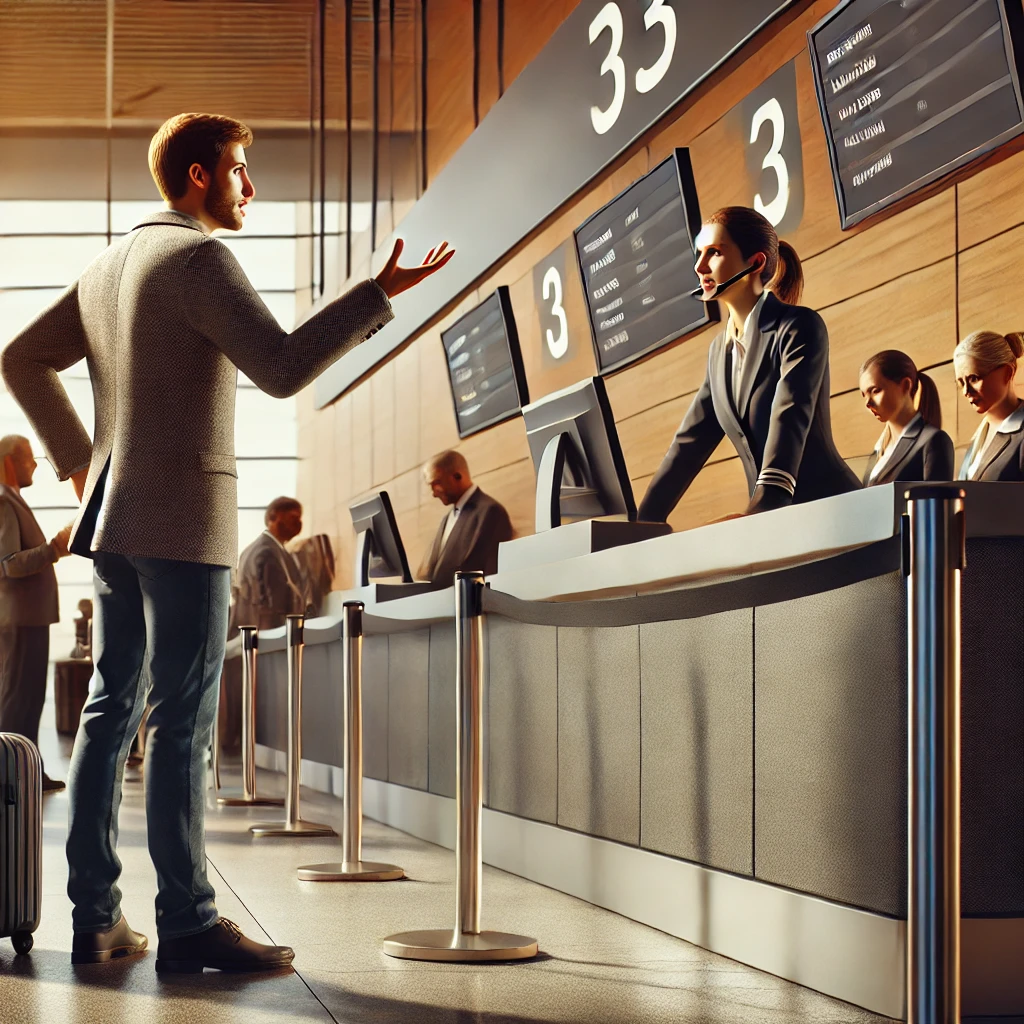Helpful Tips
Useful Tips » Claims
Flying can be a pleasant experience, but it is not always free from inconveniences. Delays, lost luggage, unexpected schedule changes, or poor service quality are some of the problems passengers may face. Knowing how to handle these situations is essential to protecting your rights as a passenger.
When Is an Airline Claim Applicable?

Airline claims are applicable when an airline fails to meet the conditions established in the transportation contract. These situations include:
- Significant delays: Especially if they exceed 3 hours for international flights or the time defined by local regulations.
- Lost, damaged, or delayed luggage: Including bags that do not arrive at their destination or are delivered in poor condition.
- Flight cancellations: If not notified in advance or if adequate alternatives are not provided.
- Unexpected changes: Schedule modifications, unplanned stopovers, or aircraft changes without prior notice.
- Poor service quality: Inappropriate onboard conditions or failure to deliver contracted services.
Steps to File an Airline Claim
1. Identify the Problem
Before proceeding, clearly identify the reason for your claim. Gather all relevant details, such as tickets, receipts, luggage tags, photos of the issue (if applicable), and any additional documents supporting your case.
2. Contact the Airline
Most airlines provide claim forms or online complaint systems. This should be your first step. Provide all relevant information and describe the problem clearly and concisely.
3. Know Your Rights
Depending on your destination, specific regulations protect passengers. Some of the most important include:
- European Union (EC Regulation 261/2004): Establishes compensation for delays, cancellations, and denied boarding.
- United States: Airlines must compensate for significant delays or baggage issues as per the Department of Transportation's rules.
- Latin America: Each country has its own legislation, often regulated by organizations such as IATA (International Air Transport Association).
4. Send a Formal Complaint Letter
If the airline’s initial response is unsatisfactory, write a formal complaint letter. Include:
- Your personal and contact information.
- Flight details (number, date, time, and destination).
- A clear description of the issue.
- Supporting documents (tickets, receipts, photos, etc.).
5. Consider Mediation or Legal Advice
If the airline does not respond or denies your claim without justification, you can turn to consumer protection agencies, airline dispute mediators, or, as a last resort, a lawyer specializing in air travel.
Tips for Baggage Claims
1. Report the Issue Immediately
In cases of lost or damaged luggage, file a claim directly at the airline's counter at the airport. They will provide you with a reference number for follow-up.
2. Know the Deadlines
It is crucial to respect the deadlines for filing claims. For example, in most cases, you have:
- 7 days for damaged baggage claims.
- 21 days for delayed baggage claims.
3. Keep Receipts
If you need to purchase essential items while waiting for your luggage, keep all receipts. These expenses may be reimbursed by the airline.
Claims for Delays and Cancellations
1. Request Compensation
If your flight is delayed beyond the permitted time, you may be entitled to financial compensation. Airlines are also required to provide assistance such as food, accommodation, or transportation.
2. Save All Details
Keep all information related to the delayed or canceled flight, including emails from the airline, tickets, and any official communication about the issue.
Airline claims are a crucial tool for ensuring your rights as a passenger are respected. Stay calm, gather all necessary documentation, and follow the steps outlined to resolve the issue effectively. Although the process may be tedious, the laws are designed to protect you and ensure a fair travel experience.
